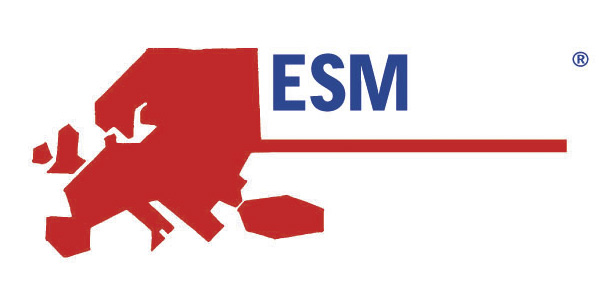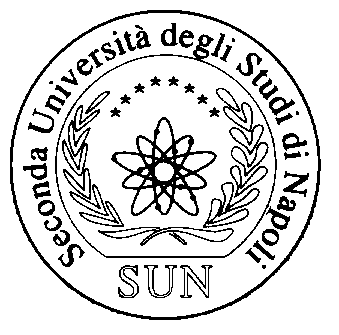
ESM©'2004
October 25-27, 2004 - UNESCO, Paris, France
Conference Workshops
Conference Workshops
Workshop Simulation with Petri Nets
 Petri nets were introduced by C.A. Petri as a
"finitary combinatorial model of event topology which, is in close correspondence with the models of modern physics, is capable of
describing total information flow, and has proven superior to some conventional models both in construction and in analysis of systems
of complex organization". Although many other models of concurrent and distributed systems have been developed, Petri nets are still
considered "a central model for concurrent systems with respect to both the theory and the applications" due to the natural way they
allow to represent reasoning on concurrent active objects which share resources and their changing states.
Petri nets were introduced by C.A. Petri as a
"finitary combinatorial model of event topology which, is in close correspondence with the models of modern physics, is capable of
describing total information flow, and has proven superior to some conventional models both in construction and in analysis of systems
of complex organization". Although many other models of concurrent and distributed systems have been developed, Petri nets are still
considered "a central model for concurrent systems with respect to both the theory and the applications" due to the natural way they
allow to represent reasoning on concurrent active objects which share resources and their changing states.
The huge amount of work invested in making the modelling power of Petri nets formalism more and more intensive, led to a
continuous evolution of this area, such that "Petri nets" is currently a generic name for a whole class of models divided into
three main layers (ranging from Elementary Net Systems and Place/Transition nets to traditional High Level nets and High Level
nets with abstract data types). For the performance evaluation of the modelled system, time execution and/or stochastic processes
have also been considered, leading to important extensions to the above general Petri nets classification: Timed and Stochastic Petri
nets.
Petri nets are widely considered as an operational (rather than
denotational) formalism for Discrete Event Systems. They have proven to be useful in solving difficult
discrete-event problems in a variety of application domains such as in software engineering,
operating systems, databases, communication and co-operation protocols in distributed systems, manufacturing systems, defence
command and control, business processes and telecommunications, etc.
As investigations in this area show, Petri nets also cover a large number of currently active research areas. Despite the great
amount of work and achievements, much effort is still to be done to meet the applications requirements.
This workshop is intended to provide a forum for the presentation and discussion of original ideas, recent
results and achievements by researchers, students and system developers on issues and challenges related to the above domain.
We invite to submit original contributions addressing, but not limited to one of the following topics:
|
-- Simulation using Petri Net Systems, -- Place/Transition nets, -- High-level Petri nets, -- Timed and Stochastic Petri nets, -- Temporal and real-time logics with respect to Petri nets, -- Analysis methods of High Level nets and their time extensions, -- Modular Petri nets, -- Object-oriented Petri nets (OOPNs), -- Computer tools based on OOPNs, -- Applications of OOPNs. |
Submit your proposal here
Workshop Modelling and Simulation with Bond Graphs
The Bond Graph Workshop will bring experts together for the purpose of discussing new concepts, methods, techniques, tools and applications of this energy-based modelling methodology. Papers dealing with all aspects of the use of bond graphs in system design, analysis, and control are welcome. The workshop will provide a forum for the presentation and discussion of recent research and applications of the Bond Graph methodology. Research papers are welcome in the following categories of presentation: Tutorials, Panel Discussions, Software and Tools, Bond Graph Theory, Advanced Bond Graph Methodology, Bond Graphs and Block Diagrams, Computer Graphics and Bond Graph Modelling, Qualitative Modelling, Mechatronics Systems, Mechanical Systems and Robotics, Electrical and Power Systems, Control Systems, Thermal and Chemical Systems, Biomechanics and Prosthetics, Ecological Systems, Biological and Medical Systems, Social and Economic Systems, Industrial Applications, Large, Nonlinear Models. Submit your proposal here
DEVS Workshop
The DEVS Workshop will cover: Extensions to the DEVS formalism, DEVS and Distributed DEVS frameworks, DEVS-based next generation VHDL, DEVS standardization, DEVS applications Submit your proposal here
Fluid Flow Modelling Simulation Workshop
Papers are solicited in:Conventional fluid dynamics,
New developments in boundary tracking, adaptive multiscale meshes, algorithm stability, turbulence
Atomistic methods
Ab-initio and classical molecular dynamics, direct simulation Monte Carlo.
Mesoscopic methods
Lattice gases, lattice-Boltzmann, smoothed particle dynamics, \dissipative particle dynamics, discrete simulation automata, etc.
Hybrid methods
Atomistic-mesoscopic and mesoscopic-continuum: direct simulation Monte Carlo, adaptive-mesh dissipative-particle dynamics, etc.
Multidisciplinary and industrial applications
Chemical and biomedical engineering, automotive, oil extraction and aeronautic industry, flow in porous media, Fluid Dynamics
Simulation, Fluid Dynamics Simulation in Turbomachinery Flow Analysis of Pump Turbines, Water, air, vibration analysis through
fluid flow modelling, Electromagnetic Field Simulation, Virtual Wind Tunnels, Structural analysis Statics (Stress, Deformation), Dynamics
(Vibration), Eigen value, Fatigue, Thermal load Electric power plants, General plant components Computational fluid dynamics
Compressible flow, Incompressible flow, Heat transfer, Multiphase/multi component flow, Combustion, Reaction,, Noise (Flow-induced sound) Gas turbines/Steam turbines,Combustors, Nuclear plant
components, Hydro turbines, Pumps, Heat exchangers, Piping systems Computational
electro-magnetics Static elecromagnetics, Eddy current, Electromagnetic wave, Electric circuit Nuclear fusion
reactor, Transformers, Switch gear, Rotating machinery, Inverters/Converters Coupled problems Fluid-structure coupled
analysis, (Flow-induced vibration), Fluid-electric field coupled analysis, (Insulation) Heat exchangers, Electric power transmission
components. Submit
your proposal here
SIMULA Workshop: "SIMULA past, present and future"
 SIMULA
is the first OOP language and with the exception of Beta
programming language, other broadly used OOP languages are conceptual subsets of SIMULA. The standard was defined in 1967,
that's why the language used to be called SIMULA 67. The basic ideas were presented at the IFIP Working Conference "Simulation
Programming Languages" in Oslo in 1967, the proceedings were published 35 years ago in 1968.
SIMULA (SIMple Universal LAnguage) as such is a general object-oriented language. Its system classes
Simset and Simulation add the knowledge of linked lists and time processes making
SIMULA a process-oriented simulation language.
SIMULA
is the first OOP language and with the exception of Beta
programming language, other broadly used OOP languages are conceptual subsets of SIMULA. The standard was defined in 1967,
that's why the language used to be called SIMULA 67. The basic ideas were presented at the IFIP Working Conference "Simulation
Programming Languages" in Oslo in 1967, the proceedings were published 35 years ago in 1968.
SIMULA (SIMple Universal LAnguage) as such is a general object-oriented language. Its system classes
Simset and Simulation add the knowledge of linked lists and time processes making
SIMULA a process-oriented simulation language.
The workshop would concentrate on the SIMULA's advanced OOP features
that cannot be found in other OOP languages and on its simulation capabilities. The so-called main classes (nested classes that
contain other local classes) that can be further specialized represent modularity achieved by using the OOP capabilities of the
language. The system class Simulation will be enhanced to contain classes supporting transparent statistics and classes oriented to
the simulation of queueing networks. SIMULA implementation for PC computers is now freely available, so the participants of the
workshop will get tools and knowledge to create fast their own simulation models.
Submit
your proposal here



















